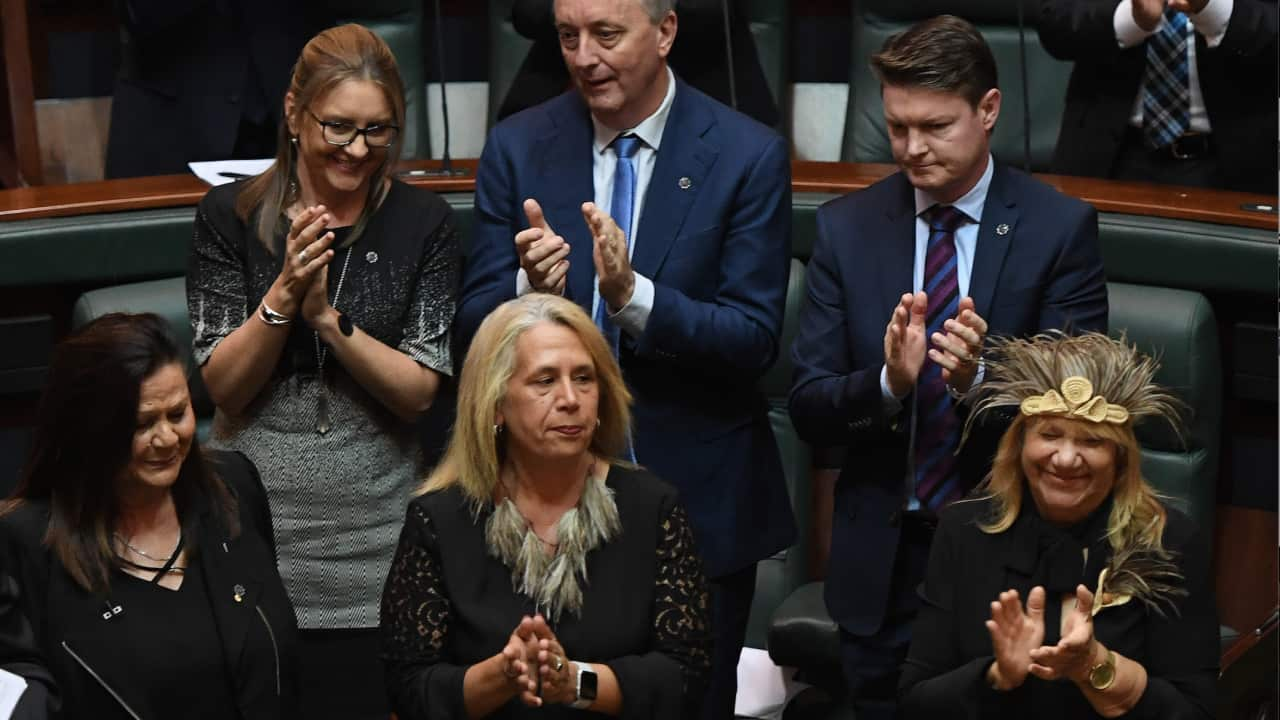Some information about the model for the body which represents the next stage in Victoria's treaty process has been released ahead of next week's Elders forum and the statewide gathering.
The Aboriginal Representative Body (ARB) was enshrined in the country’s first treaty laws earlier this year and will oversee eventual treaty negotiations.
The makeup of the body builds on previous reports from the Treaty Working Group, and has recently been workshopped during a series of treaty 'roadshows' hosted across the state by the Treaty Advancement Commission.
The proposed model has 28 seats made up of Aboriginal people living in Victoria and formally recognised Traditional Owners.
It will be democratically elected by all Victorian Aboriginal people aged 16 and over from six voting regions. There will be a gender quota, and a separate Elders' voice whose purpose will be to “ensure cultural integrity”. Elections may take place as early as next February.
"We've put forward a detailed proposal to set up the Representative Body with reserved and elected seats," Treaty Commissioner Jill Gallagher said.
"It includes detailed reasons why existing traditional owner structures - rather than Clans or language groups - are recommended to be part of the Representative Body makeup (along with elected representatives)."
'Taking comments'
The commission says Aboriginal people from across the state can pose questions about the model next Tuesday at a statewide gathering at the MCG, where more detail is expected to be released.
The community will also be given four weeks to respond to the proposal after next week’s gathering.
“We don’t intend to workshop the model, but we will be taking comments,” Ms Gallagher said.
“People can the take the model away, digest it, have conversations in their own community and provide feedback within that four week period.”
The gathering is the latest step on the road to the country's first treaty, which kicked-off in 2016 when 500 Aboriginal leaders from across the state unanimously opposed constitutional recognition.
The Federation of Victorian Traditional Owner Corporations (FVTOC) was part of a recent briefing on the ARB model and said they felt like their voices had been heard.
“From what we’re seeing the priority and the emphasis is on Traditional Owners and that nature of being inclusive, transparent. And it looks practical,” FVTOC CEO Marcus Stewart said.
“We’re pretty excited to see the presentation, hear from the commissioner and get a real sense of what the next steps are.”
Cienan Muir from the Koorie Youth Council told NITV News he is unsure of the detail of the proposed model, but he is looking forward to learning more at next week's meeting.
"It's a very historic moment and young people in our communities are ready to take up a more active role," he said.
"I will be working behind the scenes as much as possible to advocate for young people's involvement in this process."
'Two models'
The Treaty Commission is not the only body consulting with the community on treaty. The Aboriginal Land Justice Group held a meeting at the end of August where up to 40 people agreed on a different model for the Aboriginal Representative Body.
That body would be made up of 76 Aboriginal people, with two representatives from each language group in Victoria and a separate Sovereign Elders' council with one representative from the surviving Clans.
It would include an executive arm of 12 people who will lead the decision-making. Greens MP Lidia Thorpe has thrown her support behind this model and wants to see it presented at the statewide gathering next week.
Greens MP Lidia Thorpe has thrown her support behind this model and wants to see it presented at the statewide gathering next week.

Alternate proposal: Aboriginal Representative Body Source: Supplied
“I’m hoping for some robust debate on the two models. Let’s not be dictated to on what the commissioner believes to be the model going forward,” she said.
“The model that [the commissioner] is putting up is a model that we fought against when I was on the Interim Treaty Working Group two years ago. It’s the government’s model.”
Ms Gallagher said the gathering will encourage deep conversations.
"The Statewide Gathering is fundamentally about discussion. We're expecting robust debate, and we want everyone attending to feel welcome to contribute," she said.
Registrations for the event have now closed.



